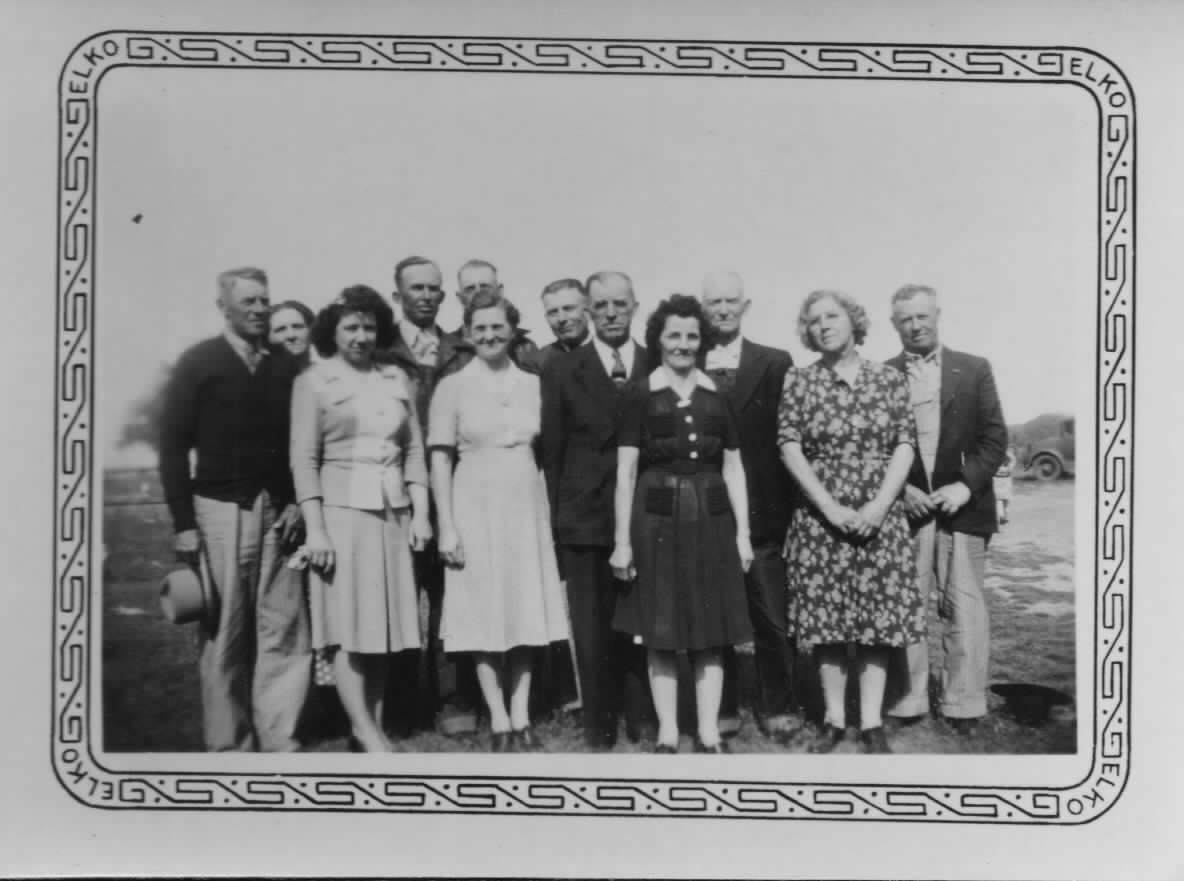|
Background
Menu
Origin of the Daltons
at the Focus of Our Project
History of Our Family Group
Project
How
do I join the Dalton America project?
Privacy and Sharing DNA Results
Which DNA test should I
purchase?
For Y-DNA Members
How
do Y-DNA results tell me about my ancestors?
Working with my Y-DNA Matches
-
Step 1: Reading my Y-DNA Matches
-Step
2: Preparing my Y-DNA dashboard
-Step 3: Locating your Family Subgroup
-Step 4: Connecting
with matches
For atDNA (FF) Members
How
do atDNA results tell me about my ancestors?
Working with my FF Matches
-
Step 1: Reading my FF Matches
-
Step 2: Preparing my FF dashboard
-
Step 3: Connecting with my FF cousins
Return
to Dalton America Home Page
|
|
Managing Privacy and Sharing of my
DNA Results
There is increasing concern
today about privacy of DNA results.
Your administrators appreciate this
concern. FTDNA supports these concerns
by providing access to your dashboard only
by ID and password, and by permitting you to
select privacy and sharing levels for your
data.
When considering privacy issues, it is important
to recognize that many types of DNA tests with
many different purposes are
now available to
consumers. Not all DNA tests are the
same. For example, the Y-DNA, Family
Finder, and mtDNA tests report only markers
relevant to genealogy matches and do not
generate results for the medically relevant
markers that many fear are subject to abuse by
insurers and advertisers of drugs and medical
products. Although FTDNA does market a
medical DNA test, the three genealogy tests only
generate results for identifying family
connections.
When you make decisions about privacy and
sharing, do consider the tradeoff between the
two. Because the full value of DNA tests
requires setting your results into relationship
with the results of others, learning more about
your family comes from sharing your DNA results
and family information with your newly found
cousins. The FTDNA dashboard and its
features facilitate that productive
sharing. You never forfeit the built-in
privacy protections provided to everyone, but
you will also have choices to manage
extraordinary protections if you wish to forfeit
some sharing in favor of privacy.
Setting Your Privacy and Sharing
Choices
From the dashboard click
on your name in the upper right hand
corner. A menu will drop down. Click on [Account
Settings].

When the dialogue box opens, click on [PRIVACY &
SHARING] on the horizontal menu.

Several choices are presented to you.
- Matching Preferences.
To work with your matches to expand your
knowledge of your family, you must "Opt into
Matches" by moving the selector to the
right.
- Law Enforcement Matching (LEM).
A more recent concern is the
exposure of relatives -- known and unknown
-- to law enforcement investigation as a
result of your posting your DNA data.
This concern arises from the possibility of
error in DNA testing and the impact that
such errors may impose on relatives.
FTDNA has provided protocols that manage law
enforcement access to your DNA. You can
indicate your willingness to provide access
or desire to limit access to your data for
this purpose in the PRIVACY AND SHARING
choices.
- Family Finder Match Levels.
The power of Family Finder to expand your
knowledge of your ancestors depends on
correspondence with your matches. You
can set how broadly matches are
displayed. The FTDNA recommendation is
to make the report on your relationship
available to all your matches.
- mtDNA Match Levels. To
work with your matches, we recommend making
your information available to "All Levels."
- Y-DNA Match Levels. To
work with your matches, we recommend making
your information available to "All Levels."
- Match Preference Summary.
No choices required. This just
presents a summary of the choices you have
made above for you to review.
- Origins Sharing. The
setting you choose here will have very
little effect on working with your matches
but also reveals very little that might be a
privacy concern. We see no reason not
to "Opt in to Sharing."
- Family Tree Sharing. This
is a critical element to share. To
work smoothly with your matches you
should at least share your tree with
your matches. Realize that
your decision to block Law
Enforcement Matching will deny law
enforcement agencies
access to
your tree as well.
Working with Dalton America Group
Project Administrators
Before you leave the Account
Settings page, another important privacy
setting governs the access of group project
administrators to your data. You
express this choice by clicking [PROJECT
PREFERENCES] on the horizontal menu, then select the family group
(Dalton America) from the Group Project
Administrator Access list
that opens. Click
on the pencil to the right and a
box opens for you explaining the various
levels of privacy and permitting you to set
the level for each administrator. You
should set that level as you find
comfortable, but realize that setting it too
restrictively erodes the value of your test
by limiting the administrators' ability to
develop aggregate data such as the family
group's Y-DNA results chart. In
addition, it limits the administrators'
ability to answer your questions because we
will not see all the information that you
will see on your dashboard. The recommended
level is “Limited Access.”

Below the choice for each group is is a
second choice: Group Project Sharing.
This permission simply helps the group project
administrators maximize the number of results on
the Group's Results pages. No names are
attached to this information so privacy really
is not an issue with such sharing. All in
the group will get the most from their Family
Group membership if you "Opt into Sharing" by
moving the selector
to the right. These results charts permit
you and others to identify groups of Y-DNA tests
that form a family group.
|

